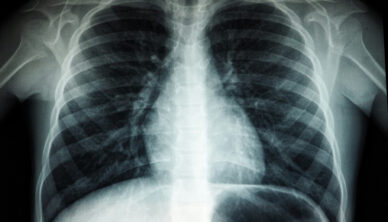Contents
Chest Pain

Find out the common causes of chest pain, ranging from muscle strain to heart attack and when to seek medical attention.
What is Chest Pain?
Chest pain is a common symptom that can feel like tightness, pressure, squeezing, burning, or discomfort anywhere in your chest area, from between your shoulders down to your upper abdomen. While chest pain can be alarming, it has many potential causes, and most are not life-threatening. It is essential to understand the potential causes of chest pain and know when to seek medical attention.
Common Causes of Chest Pain
- Muscle Strain: Chest pain can result from muscle strain or inflammation in the chest wall, often triggered by physical exertion or injury. This type of pain is typically sharp or stabbing and worsens with movement or deep breathing.
- Gastroesophageal Reflux Disease (GORD): Acid reflux, a common symptom of GORD, can cause a burning sensation in the chest known as heartburn. This discomfort may worsen after meals or when lying down.
- Costochondritis: Costochondritis is inflammation of the cartilage that connects the ribs to the breastbone (sternum). It can cause chest pain that worsens with movement, coughing, or deep breathing and is often mistaken for a heart-related issue.
- Anxiety or Panic Attacks: Intense emotions, such as anxiety or panic, can trigger chest pain, along with other symptoms such as shortness of breath, palpitations, and sweating. These symptoms often improve with relaxation techniques or anti-anxiety medications.
- Respiratory Infections: Infections affecting the respiratory system, such as bronchitis or pneumonia, can cause chest pain, particularly with coughing or deep breathing. Other symptoms may include fever, cough, and difficulty breathing.
Serious Causes of Chest Pain
- Heart Attack: Chest pain or discomfort that feels like pressure, tightness, squeezing, or heaviness in the chest, often accompanied by shortness of breath, nausea, light-headedness, or pain radiating to the arms, neck, jaw, or back, may indicate a heart attack. Seek immediate medical attention if you suspect a heart attack.
- Angina: Angina is chest pain or discomfort caused by reduced blood flow to the heart muscle. It typically occurs during physical activity or emotional stress and improves with rest or nitro-glycerine(GTN). If you experience new or worsening angina symptoms, seek medical evaluation promptly.
- Pulmonary Embolism: Chest pain accompanied by sudden onset of shortness of breath, rapid heartbeat, coughing up blood, or fainting may indicate a pulmonary embolism—a blockage in the lung artery. Pulmonary embolism is a medical emergency requiring immediate treatment.
When to Seek Medical Help
If you experience any of the following symptoms, seek immediate medical attention:
- Chest pain or discomfort lasting more than a few minutes.
- Chest pain associated with symptoms such as shortness of breath, nausea, sweating, dizziness, or palpitations.
- Chest pain accompanied by fainting, confusion, or loss of consciousness.
- Chest pain that worsens with physical activity or persists at rest.
- Chest pain in individuals with a history of heart disease, diabetes, or other risk factors for heart-related issues.
Diagnosis and Treatment
Upon seeking medical evaluation for chest pain, your doctor may perform various tests, including:
- Electrocardiogram (ECG)
- Blood tests
- Chest X-ray
- Echocardiogram
- Stress test
- Coronary angiography
Treatment for chest pain depends on the underlying cause and may include medications, lifestyle modifications, cardiac procedures, or surgical interventions.
Prevention
To reduce the risk of chest pain and associated complications, consider the following preventive measures:
- Maintain a healthy lifestyle with regular exercise and a balanced diet.
- Manage stress and anxiety through relaxation techniques or counselling.
- Quit smoking and avoid exposure to second-hand smoke.
- Follow prescribed treatment plans for chronic conditions such as heart disease, diabetes, and high blood pressure.
- Attend regular medical check-ups to monitor heart health and address any concerns promptly.
Conclusion
Chest pain can stem from various causes, ranging from benign to life-threatening. While many cases of chest pain are not related to heart issues, it is crucial to seek medical evaluation for any new or concerning symptoms to rule out serious conditions.
By understanding the potential causes of chest pain and knowing when to seek medical help, you can take proactive steps to safeguard your health and well-being.
Arranging To Visit A Private GP
To discuss any issues related to chest pain make an appointment with one of our private GPs. Appointments are available to everyone and can often be booked for the same day. There is no need to be registered with our Buckinghamshire hospital, or live locally.
Should you have insurance which covers a GP visit, we can in most cases invoice. Where you are paying directly, the cost for a 30 minute consultation is £100.
Any additional costs will always be discussed. They could apply if you are referred for an MRI scan, or to a consultant, or for other agreed decisions to support your health.
8 January 2025
